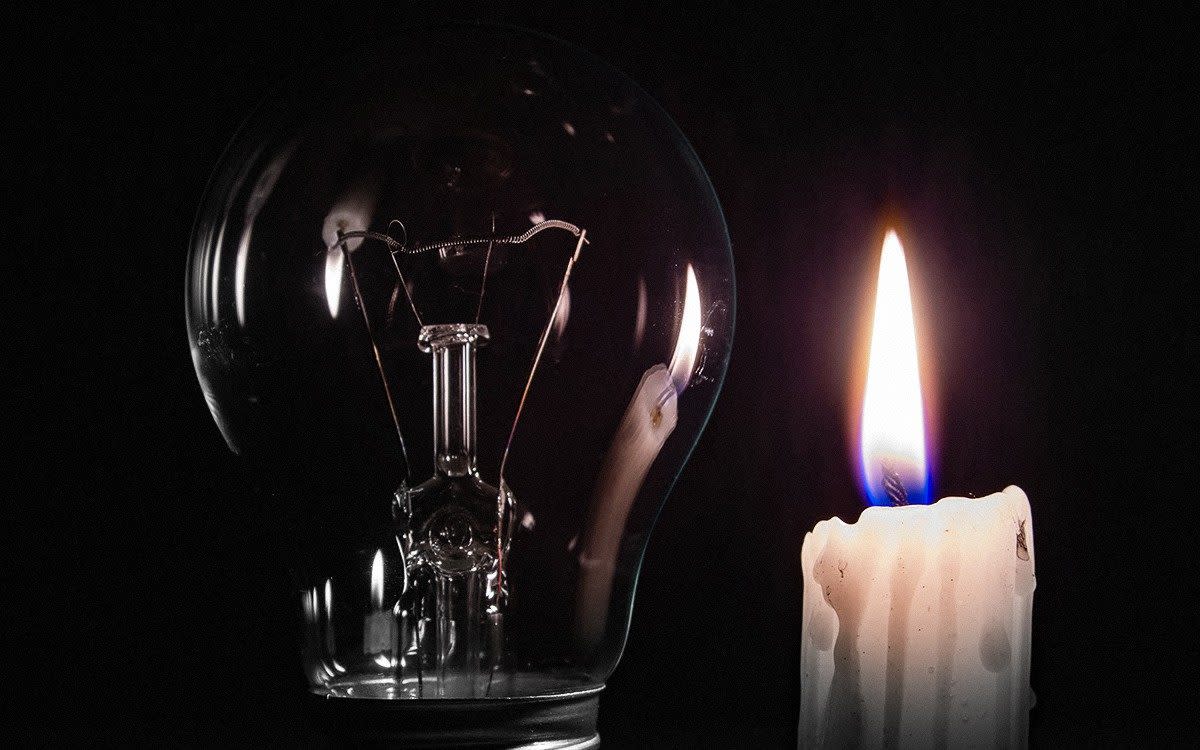How to prepare your home for a winter blackout

On Monday evening, more than a million British homes took part in an emergency scheme to cut their electricity use between 5pm and 6pm.
Under the new measure, customers were paid up to £10 for decreasing the amount of electricity they used, as part of an effort to manage the pressure on Britain's supplies.
It was the first time that the National Grid had deployed its Demand Flexibility Service outside of testing. But the drastic scheme – which was in operation again on Tuesday – is just the latest sign that Britain is struggling with its energy supply and a reminder that blackouts are a real possibility this winter.
The country needs to prepare for dark times, then. And while everybody can think of some immediate contingency measures, like stocking up on tealights and digging out the camping kettle from the attic, there are some less obvious tips to bring a little light into your household in the months to come. Here are just a few.
Know the basics

Obvious though they may be, maintaining a healthy stock of candles isn’t something you’re likely to regret. Torches are a wise investment, too. Many people rely on phone lights these days, meaning they neglect the clunky old lanterns in the cupboard, but you’ll need every last percentile of that phone battery if the lights go off, so it’s worth finding those torches (including head torches, which are especially useful if you ever need to cook in near-darkness) making sure they work and have batteries, if needed, then putting them in an obvious place.
Otherwise, make a list of things you might need and perhaps keep it all in one box, to avoid scrabbling around when the moment comes. Thermos flasks, phone and laptop battery packs, matches and lighters, first aid kits and some cash will all be useful.
Do a check list of the less obvious things that require electricity, like stair lifts, garage doors, gates, fish tanks and heaters: are you sure they can work without power? And don’t forget the car: if it runs on petrol, it’s wise to fill up, lest the pumps (which often need electricity) be affected; if it’s electric, well, keep it charged.
Staying occupied
Nobody needs reminding just how much we rely on the internet these days, but everything from train tickets to bank transfers tend to require a decent connection. This is another reason to limit phone use in a power cut: that data might be a lifeline, if only to provide your laptop with a hotspot WiFi connection. Saving data might be wise, to avoid needing to top up.
Similarly, it’s important to remember that blackouts will be very boring, especially once the novelty has worn off. If board games are only going to cause arguments, you can counter that by downloading your favourite Netflix, iPlayer or other streaming service series ahead of time. The Netflix app allows you to have “up to 100 active downloads at a time per device” – which is a lot of binge-watching, assuming your phone or laptop battery holds out.
Understandably, a lot of people won’t want to run down those devices in case they are needed in an emergency. It’s a good point: for one thing, a lot of basic but essential information is stored on our phones. It would be a good idea to write down on paper a list of emergency phone numbers, passwords and details.
Dealing with the fridge and freezer

We are repeatedly told that stockpiling food and freezing anything that’s soon to go out of date is sensible in a cost of living crisis, but what if your fridge and freezer suddenly lose power for three hours?
Fortunately, the Food Standards Agency advises that “your fridge should stay cool for up to 4 hours after loss of power, if you keep the door closed,” After this, food may become unsafe. It is never advised that people test whether food is safe by tasting it.
Food in a closed freezer “can remain frozen for 24 hours or more – the fuller the freezer, the longer the contents will remain frozen”, which is a relief. Ice cream should be thrown away as soon as it is soft. Meat and fish “that are still below 8C can be cooked and refrozen, or cooked and eaten”. Everything else, such as tinned food and fruit and vegetables, shouldn’t be affected unless they were refrigerated.
Keeping warm
News reports suggest Britons are already thinking about how to keep warm without using energy – retailers like Lakeland, John Lewis and Marks and Spencer are all offering more thermals than usual. The latter’s discreet thermals, which are one of the company’s best sellers, uses a “Heatgen Plus fabric” that is designed to last longer than one season.
John Lewis, meanwhile, has seen a steep rise in early onesie purchases. Claire Miles, the head of category fashion at John Lewis, told the Telegraph last year: “Onesies used to be bought as a light-hearted Christmas gift but this year they are being bought much earlier in the season, along with hooded blankets, perhaps indicating people are buying them with the more serious intention of keeping warm.”
Knowing when it’s over

It’s a simple tip, but one that’s also easy to forget: for safety reasons, switch as much as possible off when there is a power cut (especially PCs, as power surges could damage them) but always leave one light on, so you know when power has returned. Nobody wants to spend more time in the dark than they have to.

 Yahoo News
Yahoo News 
